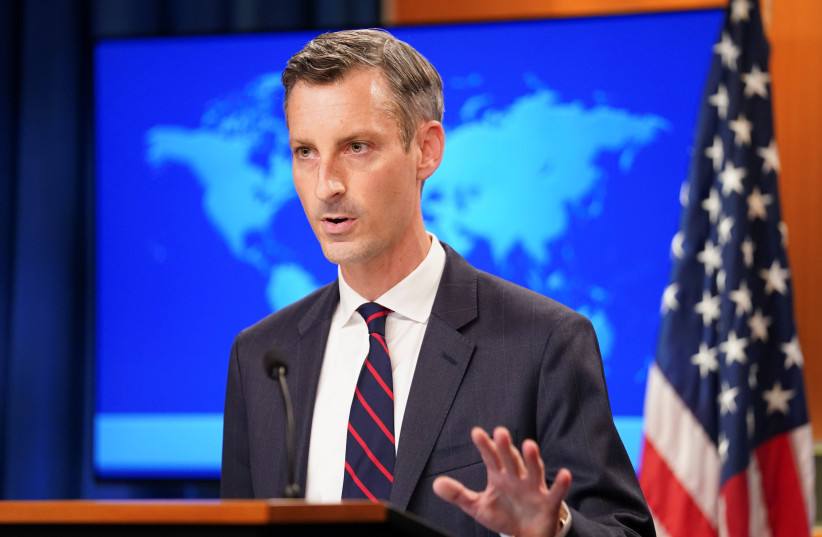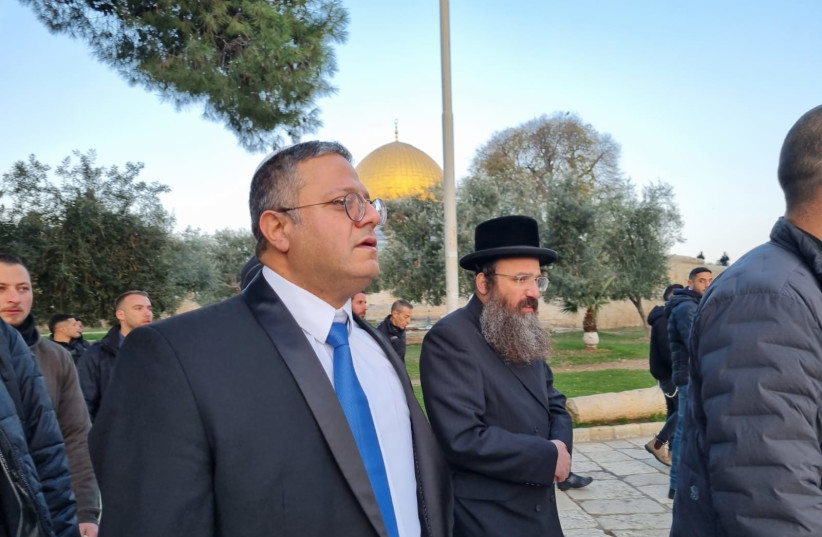by JPost editorial
Over the years, it has become unclear what work the Quartet actually does and whether it has relevance when it comes to what is taking place in Israel and the Palestinian territories.
 |
US State Department spokesman Ned Price holds a press briefing on
Afghanistan at the State Department in Washington, U.S., August 16,
2021.
(photo credit: REUTERS/Kevin Lamarque/POOL)
|
The United States has not made any formal decisions about the Quartet, the group comprising the US, Russia, the European Union and the United Nations that is supposed to work on Israeli-Palestinian peace issues. However, after Russia’s invasion of Ukraine and due to long inaction by the Quartet, it is clear that the group lacks legitimacy, an important asset for any stakeholder – a country or an organization – that wants to play a role in regional peace issues and that needs to take a realistic approach to what is happening on the ground.
The Quartet was inaugurated in 2002 during the Second Intifada. It was created in an era when US-Russia relations were more productive and when the EU was seeking to play a greater role in the Middle East.
Over the years, it has become unclear what work the Quartet actually does and whether it has relevance when it comes to what is taking place in Israel and the Palestinian territories.
US State Department Spokesperson Ned Price said on Wednesday that he was “not aware that we’ve made any formal decision regarding the Quartet or any formal statement regarding the Quartet.”
Nevertheless, the Biden administration is committed to peace issues. It has expressed concerns this week about the visit of National Security Minister Itamar Ben-Gvir to the Temple Mount, and it is concerned about the new Benjamin Netanyhau-led government’s policies.

This is part of a larger context in which there are thought to be tensions because of the new government’s hardline, right-wing conservative agenda. The US wants to continue its commitment to Israel and work closely with Jerusalem, but it has made clear that it will not be able to remain silent when policies it views as dangerous are enacted.
So what is to be made of the current impasse and the future of the Quartet?
Russia’s invasion of Ukraine casts significant doubt on how Moscow can play a role in the Israel-Palestinian conflict.
The reasons for this are multifaceted. On one hand, Moscow is distracted by the war. It will not be able to focus on the Middle East and the ongoing impasse between the sides.
On the other hand, Russia’s invasion of Ukraine means it is no longer looked upon as a legitimate arbiter by the US and the EU, even if for some Palestinians it is perceived to be more objective due to the strong US alliance with Israel.
How can Russia annex Crimea and parts of Ukraine, for instance, and then condemn Israel for policies in the West Bank, or “annexation?” Russia will have a hard time playing a role in a peace process if it is actively engaged in a major war that is a blow to international law.
Nevertheless, Vladimir Safronkov, the Russian Foreign Ministry’s special representative for the Middle East, recently said Moscow would not be distanced from its role in the Middle East.
“I am convinced that any attempts to push Russia out of the region, to influence its relations with the region [will not work].”
Vladimir Safronkov
“I am convinced that any attempts to push Russia out of the region, to influence its relations with the region [will not work],” he said, indicating that the West has tried to isolate Russia from the work of the Quartet.
Considering these new realities, it is worth asking what the logic of the Quartet is now. Is the group taking a realistic look at events taking place in the West Bank and Gaza, such as rising violence in the West Bank, fueled by the erosion of the Palestinian Authority’s role in Jenin and Nablus? Gun smuggling, too, is a major challenge.
Is the Quartet or its members taking a serious look at how weapons smuggling undermines the PA and causes violence? Is it addressing this with neighboring authorities, such as Jordan and Egypt?
Countries involved in supporting peace need to address realities on the ground, not just make due with statements or unrealistic ideas. Israel and the Palestinian Authority need the commitment of the international community, but they also need the global community to recognize the changes that have taken place over the last decades.
JPost editorial
Source: https://www.jpost.com/opinion/article-726788
No comments:
Post a Comment